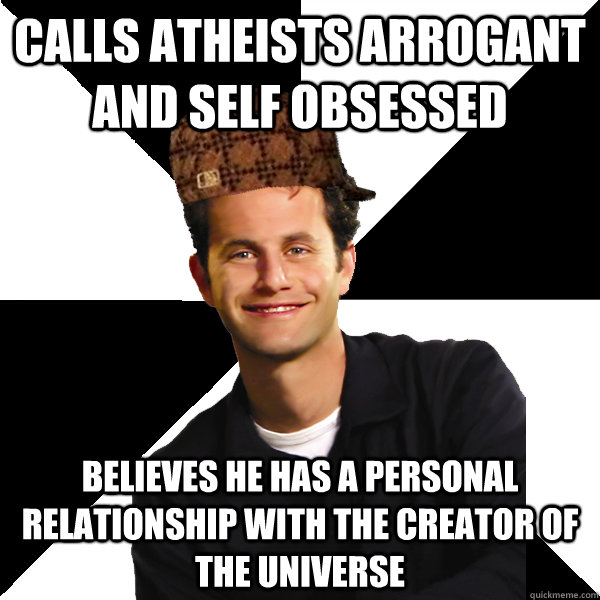Joe Heschmeyer at Shameless Popery talks about how
evolution does not disprove Christianity. Then he makes a quick point that the evidence is actually the other way.
In fact, the entire process of evolution points to an ultimate
beginning, and thus, to a Creator. So the entire debate over evolution
is worse than a red herring, because it starts from the completely
inaccurate assumption that if evolution is true, religion is false (and
vice versa). In fact, the opposite is true: if everything in time and
space originated at a single point, and grew and developed and evolved,
tracing the line backwards gets you to a place where a Timeless,
Spaceless Cause is necessary to set the whole chain in motion... that
is, evolution should be considered a proof for our Eternal, Immaterial God, rather than against Him.
This is kind of along the lines of St Thomas Aquinas. Causality points to an uncaused cause. I am not sure you need evolution to prove causality so it does not really add anything logically but the diagrams you draw when showing how one species led to another seem to cry out for an ultimate source. So it shows intuitively what St Thomas shows logically. But you still need St Thomas to show what sort of properties this uncaused cause has. That it really is God-like and we are not just filling a scientific gap with God.
Atheist allow themselves any gap in their theory, any huge question they don't have an answer to. They will mock you as believing in "god of the gaps" if you suggest the massive holes in atheism are a reason to reject it. There is a point that neither atheism nor Christianity claims to know everything. It is hard to imagine a problem with either system that cannot be covered over with an appeal to some answer we don't know and may never know. So both theism and atheism are unfalsifiable. Christianity is somewhat falsifiable. You could find the body of Jesus. Catholicism is very falsifiable. The papacy could to cease to exists. The church could teach a contradiction. In fact, if Catholicism was not true the probability that it would have been falsified by now is about 100%.
Anyway, after declaring atheism to be unfalsifiable I shall try and falsify it. I won't succeed in an absolute sense but I do think evolution gives us some good reasons to reject atheism. Atheism teaches that some of the basic desires of the human person are not based on reality. We want to believe in goodness. We want to believe life has meaning. We want to believe in life after death. We want to believe in justice, good deeds will be rewarded and bad deeds will be punished. Atheists want to believe these things too. They just tell us our desire to believe these things is not evidence that they are true. That is not really accurate. It is at least possible that our desires might be pointing to a truth. It could be we have a spiritual sense. Just like we have eyes to tell us about the world of light and ears to tell us about the world of sound we might have some sense to tell us about the spiritual world. That can't be logically excluded.
The other choice that atheists assume is right is that our minds are defective rather than perceptive. Rather than perceiving a truth they are telling us a lie. But that is where evolution comes in. Evolution expects biological traits to make some sense. Humans having a perceptive brain would fit. Humans having a defective brains does not really fit. Simple defects might happen but elaborate traits are supposed to have purposes. It becomes ironic because atheists love to go on and on about how terrible religion is and how superior atheism is to any religion but if that is really true then evolution should have given us atheism. It is certainly simpler and would be better.
Atheists can dig themselves in deeper if they want. They can argue that evolution should not be expected to produce a human mind ordered towards truth. That a mind that lies to us has survival advantages and that is what we would expect. There are two problems with that. One is that atheists tend to do their thinking with a human mind. If what comes out of such a mind is inherently untrustworthy then why should we listen to them?
The second problem is our minds value truth. We can't choose to believe something we know is false. So evolution has to produce a mind that loves truth yet also loves falsehood. Those kinds of minds need to be somehow superior to those that don't invent any supernatural narrative at all.
Isn't this beautiful? Try to imagine an atheist who has a teensy problem with arrogance. I know you probably never ran into any that are like that but I have encountered a few. Then imagine them having to show why ancient atheists were inferior to ancient theists. That atheists and theists had this long term battle for survival and the theists won. Maybe instead of referring to themselves as brights they should refer to themselves as losers to help make this scenario seem more reasonable.
Anyway, someone could just say science will someday find great answers to all these problems. But the point is evolution is actually on the side of the theists. Sure it causes problems for fundamentalist Christians who are a small minority of theists that happen to be overrepresented in present day US. Still overall it does not make atheism more reasonable. The causality issues it seems to solve are just pushed back and it creates a whole new set of questions.















